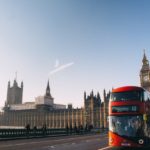The facial recognition provider XRVision is directly refuting a Washington Times report that claimed that the company’s software identified members of Antifa during the violent takeover of the Capitol building in Washington, D.C., on January 6. The conservative paper cited “a retired military officer” as its source, and alleged that two Philadelphia Antifa members were masquerading as Trump supporters during the riot.

However, XRVision has put out a statement declaring that the Times’ assertion is categorically false, and that its software has not identified any members of Antifa. The company was instead able to identify two members of known Nazi organizations, and a third with promotional ties to QAnon. That information has since been shared with Federal law enforcement agencies.
In its statement, XRVision stressed that it had not authorized anyone to share information with the Times, and did not know the identity of their military source. It then noted that the Times did not reach out to fact check the claim before publishing its story. Had it done so, the Times would have learned that the photo match provided by its source was in fact a complete fabrication, at least according to XRVision.
XRVision has since asked the Times for both a retraction and an apology, and has also asked them to Cease and Desist from making any claims about its sources with regards to XRVision analytics. The Washington Times removed the offending article from its website in response to the allegations, though Republican Representative and Trump supporter Matt Gaetz had already cited the article in the House of Representatives. XRVision nevertheless described the Times story as “false, misleading, and defamatory.”
While privacy advocates have raised concerns about bias and false matches in the use of facial recognition, it is worth noting that this case is slightly different, with XRVision alleging that someone has engaged in deliberate malfeasance. It claims that its technology is accurate, but that its findings have been misrepresented by someone not affiliated with the company.
Multiple US cities have banned the police use of facial recognition in the past few months. It’s unclear how this latest development will affect those legislative efforts moving forward.
–
January 8, 2021 – by Eric Weiss








Follow Us